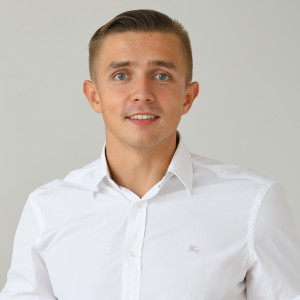Hi,
I recommend the following approach:
1) Start with "Case in point" book - you can download this book for free everywhere. It's not the best guide on how you should approach the cases, however, it will give you the basic understanding.
2) Start practicing cases with partners here or find them locally. !!! Find experienced partners or coaches who can provide a good feedback!!!
3) Purchase and read Viktor Cheng Book (Amazon Kindle store) and listen to LOMS (his website). I recommend to reread the book and listen to LOMS every 15 cases. Every time, having more experience, you’ll be finding something new.
4) Practice fast math
- Learn how to multiply double digit numbers (https://www.youtube.com/watch?v=6ndkkPZYJHo)
- Learn the division table up to 1/11 (i.e. 5/6 = 83.3)
- Learn how to work with zeros (Hint: 4000000 = 4*10ˆ6)
- Use math tools (Mimir math for iOS), Math tool on Viktor Cheng website to practice
5) Below you can find a list of the most common case types and some high-level recommendations on structuring:
- Market sizing - structuring from the supply or demand side. Structuring using a formula or using an issue tree
- Profitability - basic profitability framework. Remember about different revenue streams and product mix
- Market context cases (Market Entry, New product, Acquisition, etc). Always start with the big picture "market". Finish with something specific to the case (e.g. How to enter?"). Structure it as if you are defining the work streams for the real project.
- Operational math problem (e.g. Should we increase the speed of an elevator or just buy a second one? How should we reduce the queues? Etc.) - Structuring as a process / value chain, with inflows, operations, and outflows
- Cost cutting - I provided the recommendations on structuring it here: https://www.preplounge.com/en/consulting-forum/operations-cases-mck-1105#a2134
- Valuation - Purely financial structure with cash flows, growth rate, WACC / hurdle rate, etc.
- Synergies - revenue synergies (price, qty, mix) and cost synergies (value chain).
- Social / economics cases (e.g. How to improve the quality of life in the city? How to increase the revenues of the museum?) - huge variability. Practice 3-5 social cases before the interview
6) Also, I would try to focus on the most common industries in the following priority(sorted by probability of getting a case): 1-retail and CPG; 2-airlines; 3-Telecom; 4-banking; 5-natural resources; 6-tech
7) ! Important: don't forget about the FIT interview part. Crafting you stories and backups stories will require a couple of weeks!
PS
Here is a good list of articles regarding the different parts of the case:
1) Start with clarifying questions:
https://www.preplounge.com/en/consulting-forum/clarifying-questions-1786#a3956
2) Communicating while structuring. Here is a long post by me on how to communicate the structure during the case study:
https://www.preplounge.com/en/consulting-forum/how-to-communicate-its-structure-for-the-case-study-1313#a2806
3) Using hypothesis. I made a post about hypothesis here:
https://www.preplounge.com/en/consulting-forum/how-to-state-a-hypothesis-and-match-to-the-structure-1156#a2268
4) Communicating while making calculations:
- Always tell the interviewer your approach
- Check with the interviewer that your approach is correct
- Come to the interviewer with some preliminary answers
- Check your assumptions with the interviewer
5) Communicating during the analysis of graphs / tables
- Take a minute to look at the graph. Read the graph title. Look at the graph type and define the type (pie chart, line chart, etc). Look at the legend (ask for clarifying questions if necessary). Identify whats going on on the graph. Look for: Trends, % structures. Look for unusual things - correlations, outliers,
- Make 3-4 conclusions from the graph. Think out loud on potential hypothesis on what could be the root cause / what are the consequences
- Prioritize the most important for your current analysis and move forward with the case
6) Communicating while having questions on creativity
- Ask an interview for a minute to think
- Think of several buckets of ideas (e.g. organic growth / non-organic growth / differentiation). Remember to think as big as possible
- Narrow down to each bucket and generate as many ideas as possible
- Present the structure (buckets) and then your ideas
7) Communicating your conclusion. You can find a good example I've posted here:
https://www.preplounge.com/en/consulting-forum/how-much-answer-first-should-the-conclusion-be-1231#a2493
8) Communicating your FIT stories
Use the top-down approach while communicating your stories. "The Pyramid Principle" is the must-read by ex McKinsey on this topic.
I recommend using the STAR framework:
- In Situation, you should briefly provide the context, usually in 1 or 2 sentences
- Task usually includes 2 or 3 sentences describing the problem and your objective.
- Then you provide a list of specific actions you took to achieve the goal. It should take 1 or 2 sentences per action (Usually 3-4 actions). Note that the interviewer can stop you any minute and ask for more details.
- The results part should have 1 or 2 sentences describing the outcomes. This part is finalizing your story - make sure it can impress the interviewer and stay in the memory.
Best!











